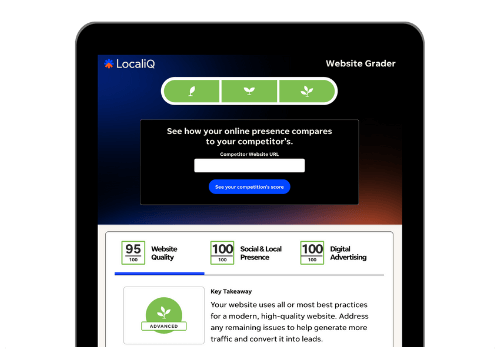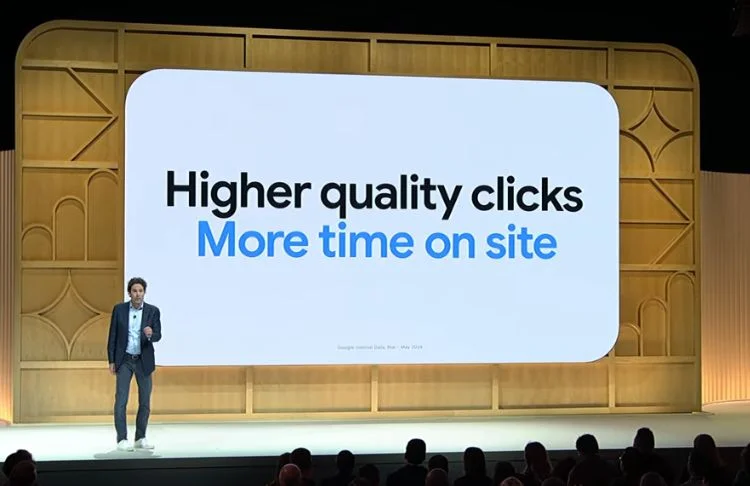Great SEO is like the perfect pie “ it doesn’t just happen; it takes a trusted recipe, some time, and a good deal of effort. It may seem like a lot, but the end result is so worth it. And just like a delicious pie recipe, there are many components of a great SEO strategy. The only way it differs is there’s not a precise recipe “ SEO requires constant change and testing, keeping up with algorithm updates, and more.
Our Director of SEO Services, Rob Frost-Dean, talked about components of a great SEO strategy on this episode of The Growth Lab Show:
Take a listen, and then let’s walk through the various elements you should be taking into consideration when devising your SEO approach.
Onsite SEO
Onsite SEO is about the work you do behind the scenes on your own website to help you get found in search engines. This includes everything from relevant content to more hidden elements like site structure and tags.
Keywords & Phrases
The cornerstone of any website’s onsite SEO strategy is its selection of relevant keywords and phrases. Consumers turn to you when they’re looking to solve a specific problem. The terms they’ll enter into a search engine when looking for a solution are the terms you want to be performing well for.
Each business will want to focus on different keywords. These keywords can pertain to all kinds of factors, including the industry you’re in, where you’re located, the demographics of your ideal customer or even user intent, they will also help by preparing you for voice search.
To find the keywords that make the most sense for your business, you can use a combination of technology and more traditional methods. A tool like Google’s Keyword Planner can identify words and phrases that consumers might use when looking for what your business offers. But sometimes it’s nice to go to your existing customers for feedback, too.
Consider sending a simple survey, asking them how they found you and for their feedback on why they chose you over the competition. This information can help you hone in on keywords that will help you stand out from other similar businesses in SERPs.
Or, if you work with a marketing partner, they can help you identify the right keywords for your business based on your unique goals, your industry, and insights they’ve gathered.
Metadata
The title tag and meta description are what users see in search results. The title is the blue link, and the description is the brief snippet of information below it.

Get as specific as possible when it comes to crafting your metadata. This handful of characters can carry a big influence when it comes to SEO.
Instead of leaving the meta title as your business’s name, consider including keywords that identify your industry and location. Make sure that your descriptions are similarly keyword-rich and full of descriptive language rather than something simple and vague like, “homepage for the website XYZ.”
Tags
Beyond your metadata, there are additional tags you can include throughout pages on your website which will help you show up for certain terms. Some of these tags are visible to your readers, while others work behind the scenes to boost your SEO.
H1, or heading, tags appear as headers within your content, but they also play a role in SEO. Relevant H1 tags give search engines a clear view of what topic your content covers and helps your perform better for the appropriate terms.
Alt tags describe images. A description of the images on your website signals to search engines what the content of your pages covers.
Internal Links
Think of your website as a spider’s web. All of the information on there should be interconnected because it’s all related to what your business does. When you include links on your pages that direct search engines to other related and relevant pages on your site, you help the search engine bots crawling your site understand how the content relates and generate a deeper understanding of what you do.
Site Structure & Speed
Google is likely to punish a slow site when determining search results. If your site is slow to load, eliminate bulky elements like JavaScript and Flash to keep things moving quickly and make sure your images are the correct size and weight, plug-ins like Smush can help with that last one.
Site structure also matters. Search engines are looking for sites that are not overly complex (limiting things to a few layers is best) and structured in a logical way. This not only makes your site easier to crawl, but it also makes for a better user experience, which search engines account for when determining which sites to display in search results.
Offsite SEO
Once you’ve considered the elements on your site, you want to think beyond. How you appear in other places on the internet can affect how your site performs in search.
Citations
Citations are any place your business’s contact information and location are listed online. The more times your business’s name and information pop up, the more likely search engines are to assume your business is legitimate.
That’s where listings management comes in. Ensuring that your business has great reach across relevant local listings and that your contact information is consistent and correct is an easy way to boost your SEO.
Reputation
Reputation is one of the broader, more ephemeral SEO categories. While Google and other search engines don’t provide a whole lot of transparency into the exact ways they evaluate reputation, SEO professionals have ventured some educated guesses. Google evaluates websites for their expertise, authority, and trustworthiness (EAT for short!), and this goes into determining whether you have a good or bad reputation.
Think about it this way: We’ve probably all looked for reviews for a business, say a dentist. If we see a dentist with a bad reputation, we’re probably not going to put our beautiful teeth in their hands, whether or not they actually earned that bad reputation.
If your website is filled with incorrect, incomplete, or shallow information and links out to other questionable sites, you’re damaging your site’s reputation. However, if your site contains pages filled with relevant descriptions of your business and products or services, clear and correct contact information, and helpful content with links to trustworthy industry leaders, you’re on the right path.
Backlinks
Backlinks are links to your website from other sites. These help strengthen your trustworthiness and reputation “ after all, if another site is recommending and sharing your content with their readers, it must be worthwhile, right?
The key with backlinks is to make sure the sites linking to you are trustworthy. You want to be in good company with other well-respected websites.
Partners to Help
A great SEO strategy is not something you can set and forget, and it’s got a lot of moving parts. Tapping a partner to keep you on track can be the difference between SERP success and failure. If you’re looking to get an expert in your corner, give us a call.
Related Articles
What to Expect when You Start SEO







